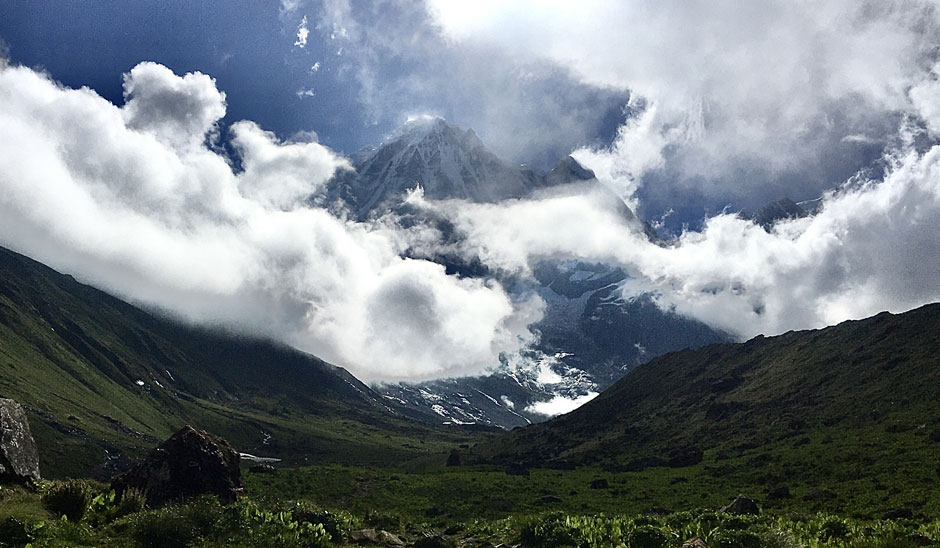How Climate Change Is Reshaping College and University Education?
Last Updated: January 01, 2023
Author: Shreya Lamsal
Tweet
In current world, Climate change has been impacting almost all dimension of our life. Excessive emission of greenhouse gases since the era of industrial revolution has been contributing in the Climate change. The adverse impact of climate change is creating a serious problem in developing a sustainable world and is impacting daily livelihood of people. For finding any solution of the problem, a proper research and study of the problem is required. As climate change is causing problems in different arena from agriculture to academics, social science to biodiversity and many more, detailed study and research of its causes, impacts and mitigation measures is important.
Please click here to get the complete details on available programs, volunteer’s roles and activities , accommodation, cost, visa , vaccination, airport arrival and the rest of it.
Get More Info Now »
Realizing its importance, different college and universities have started to incorporate Climate Change as a part of their studies. While in the past times, climate change was not considered as a big issue and many students did not have to study about it during their education, it became a huge hurdle for those generations to combat the climate crisis prevailing in the world. Climate change and its effect are inevitable and no matter the field – business, science, education, law, literature, economics, medical science- the connections are obvious as climate change affects everyone and every discipline.
Understanding Weather and Climate
People often misunderstand climate with weather. Usually, most people consider it as same. However, these two terminologies are closely interlinked, they are different. Weather is regarded as the atmospheric condition of a particular place at a particular time and it may change shortly. For example, rain, wind, sunshine, clouds etc. Whereas, Climate is the average weather of a particular place over a certain time span. According to World Meteorological Organization (WMO) average weather in terms of its mean and variability over 30 years is used for the study. So, weather is instant atmospheric condition whereas climate is average atmospheric condition in a long term.
Climate Change- Causes and Signs
Climate Change is regarded as a change in the statistical distribution of weather patterns when that change lasts for a long-extended period of time. Global warming, rise in sea level, melting of glaciers, change in rainfall patterns etc. are some examples of signs of climate change. Climate change is mainly caused due to increasing concentration of greenhouse gases like carbon dioxide, methane, nitrous oxide etc. in the atmosphere emitted by various anthropogenic activities such as industrial emission, automobile emission, deforestation, fossil fuel emission, emission from consumption habits and patterns etc. These greenhouse gases traps long wave radiation emitted from the earth and prevent it from escaping back to the space. This causes increment in the overall temperature of the earth.
Consequences of Climate Change:
According to IPCC, from 1880 to 2012 the average temperature of the earth has increased by 0.85 degree Celsius. Climate change has very adverse consequences in bio-physical world. Specially, directly impacting the bio-physical environment, it causes irreversible damage to the earth. Let’s take an example of Netherland, due to climate change, causing global warming and rise in sea level, the water level in the coastal area is increasing ultimately causing a threat to the nearby settlements. If global warming due to climate change keeps on increasing, most of the coastal settlements will soon be below water because of the rise in sea level. Similarly, different consequences are seen all over the world. Some of the consequences are: melting glaciers, heat waves, loss of biodiversity, change in rainfall pattern impacting agriculture, rising sea levels, intense drought, landslide, flooding etc.
Climate Literacy- An approach to climate mitigation and adaptation
Please click here to get the complete details on available programs, volunteer’s roles and activities , accommodation, cost, visa , vaccination, airport arrival and the rest of it.
Get More Info Now »
The humongous living of human being dependent on the emission of Greenhouse Gases, most excessively Carbon Dioxide, is the major cause of the exacerbating climate induced risks. Thus, climate literate people are essential to drive the world towards low carbon emissions living for the better future of people as well as environment. The competency and disposition to battle the climate change amongst the people psychologically aware about it is comparatively higher than the people unaware about the climate change, its consequences and adversity. Climate literacy gives the people understanding that climate change is absolutely real and its consequences are measurably huge.
Youths and Climate Change
Climate crisis causing dramatic weather events like floods, drought etc. affects the children’s growth, their accessibility to proper education, nutrition and health facilities. Climate change induced disasters and hazards creates a huge shock amongst the young people affecting their adulthood. Thus, to build a resilient young generation who can tackle, advocate and engage themselves in climate risk reduction is a must. Climate education among the students can build a foundation of climate literate youths. Young people are not only climate change victims but they can also contribute to effective climate actions and bring the waves of change to tackle the climate crisis.
Climate change transforming the school education
Educations shapes up any human’s perception and creates a solid base of a topic to garner the potential knowledge. Education in school is helpful to shape up young minds, give them ability to make logical and informed decision and change their attitude and build a perception on different areas of study. Education is a main agent to drive the climate mitigation and adaptation. This era where the climate change is being a serious threat, schools encouraging the principles of 3Rs (reduce, reuse, recycle), promoting a low carbon living can be an example of initiatives taught at schools to promote lifestyle, consumption and behavioral change of children that remains with them in their later life.
Climate change transforming the college and university education
While the issues of environment and climate were only seen and taught in the natural sciences curriculum in the past, the evidences of climate change, its crippling adverse effects in the various disciplines like engineering, law, literature programs, economics department has made it clear that the topic needs to be incorporated and interlinked with various undergraduate courses to build a foundation of climate literate and climate change resilient generation of people. Climate change is a vast topic and thus assimilating this topic and its topic in the undergraduate courses both formally and informally to raise awareness of the magnitude of problem, deal with its adversity and initiate climate change mitigation and adaptation strategies.
Integration of Climate education in school and university curriculum
The curriculum inclusive of climate change education from elementary school to the university level is one of the way to build future professionals with the required knowledge, adaptive capacity to face real world problems like climate change along with transferring their gained knowledge to their individual homes to the societies they live in. The comprehensive ad detailed course content will enlighten the students with the relatable information on climate change, its different policies and its adaptation strategies. Thus, educational institutions play a crucial role in the climate change and reshaping the school and university students.
Research and Climate Change
Climate change, as ignored earlier, has already caused immense impact in this world. Its impact is mostly irreversible and effect multiple dimensions of life. So, lately to identify the exact impact and causalities it has caused and to figure out the best alternatives to minimize its impacts, research works have been playing a crucial work. Currently huge number of research associated with climate change are being carried out in almost all of the academic area including agriculture, social science, urban development, environmental science, engineering etc. These research works are proven to be a boon in climate change mitigation and adaptation.
Role of academics in Climate Change Mitigation and Adaption
Climate change is not something that only creates problem in bio-physical environment. It hinders sustainability and overall wellbeing of humans. If mitigation and adaption measures are not incorporated seriously and ignored today, our future offspring will face even more serious consequences making this world hard to live. As we know, for every problem faced solutions are provided by resource persons. In current world, resource persons are academicians as they carry deep and insightful knowledge regarding the topic. Academics incorporating the study area of climate change, helps to understand the sensitivity and vulnerability of Climate Change in diverse sector through course study and research work and hence, helps to find out and implement its mitigation and adaptation measures. College and University graduates with this kind of academics further in the related area provide strong support to climate change mitigation and adaptation.
Please click here to get the complete details on available programs, volunteer’s roles and activities , accommodation, cost, visa , vaccination, airport arrival and the rest of it.
Get More Info Now »
Conclusion: Climate Change Is Reshaping College and University Education
In the modern day, the clear understanding of mankind being interlinked with environment and its varied aspects is gaining the considerable amount of attention and thereby is largely influencing the people to take interest in the ongoing global environment issues like Climate change. Thus, the professionals, advocates, change makers, activists and enthusiastic of the future in the field of climate change and environment need to be shaped from their basic school level of education as education plays a huge role to amplify and unfold the climate change saga. From being carbon neutral to being inclined towards environmentally friendly environment, educational institutions can train and motivate the students be sensitize the climate change issues of the globe.
As the traditional courses were exclusive of environment and its issues or very little linked to environment, the dire need is felt to integrate the climate issues in the education sectors to build their courses with its links to climate, its issues rather than having only different climate change course as an approach to help the students relate to the risks of climate change to their life, society and professional works. Equipping the young generation of minds with the skills and knowledge to address climate change, its consequences is one of the major parts of the climate change mitigation and adaptation efforts. The inclusiveness of the climate change education from the school level raises the awareness and capacity of the whole society in a longer run.
Please click here to get the complete details on available programs, volunteer’s roles and activities , accommodation, cost, visa , vaccination, airport arrival and the rest of it.
Get More Info Now »










